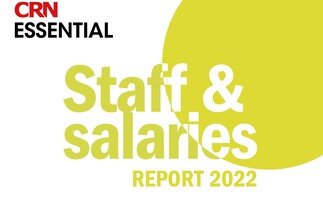DaaS is being branded as a PC market game changer, but here are the main barriers to adoption channel partners are likely to meet when pitching the model
Newly released research from CRN Essential found that 12 per cent of UK end users have begun adopting DaaS, with a further 11 per cent planning to.
When we asked respondents to expound on their views on DaaS, although many acknowledged the cost, support and technology-related benefits DaaS can bring, more were worried about potential lock-in or felt DaaS wasn't the right fit for their business.
The full DaaS Adoption Report is available only to CRN Essential subscribers.
But here we round up the most common objections partners are likely to encounter when pitching DaaS, based on end-user comments from the research.
We like owning assets
Although John Paul Getty once famously advised "buy that which appreciates, lease that which depreciates", many organisations still have a hardwired predisposition towards owning devices.
"I'm a big fan of owning things, not leasing," said the IT manager of a mid-sized financial services firm.
"Old-fashioned directorship requires purchasing equipment," grumbled a lead software developer at a small engineering services firm.
Others confided that it is easier to obtain budget for outright purchases of PCs in their sector.
"As a very small, independent school it seems to be easier to get a lump sum and buy the equipment rather than load budget with continuous payments," said an IT manager in education.
DaaS is more expensive
Although DaaS trumpets a lower cost of ownership, not all end users are convinced, with eight raising objections that DaaS is more costly than buying the devices and support separately.
One assistant director working in the education sector branded DaaS "too expensive for large organisations", while the IT manager of a small public sector organisation said the DaaS options it had investigated "haven't been financially viable".
"Our trial showed it to be more costly versus a three-year refresh cycle," said an assistant director working for a large education organisation.
"We have a regular replacement policy and so far DaaS has proved more expensive," added the CIO of a large transport and logistics firm.
We don't want to be locked in
DaaS allows firms to control costs, but one of its main strengths is also seen as a drawback in some quarters.
"We steer away from dependencies like these where I work," said a financial services respondent.
"With DaaS, you're locked in," added the IT manager of a mid-sized professional services firm. "I prefer to be flexible with my spending. If business is bad, maybe we keep our devices a bit longer. DaaS, in my view, is another term for leasing."
DaaS doesn't work for complex environments
DaaS' one-size-fits-all nature does not always sit well with end users with complex infrastructure set-ups or bespoke software requirements.
An engineer at a large financial services firm said they haven't considered DaaS because "too many legacy applications would need to be rewritten", while an IT manager in the education sector said DaaS is "not an easy fit with our high containment labs".
"DaaS doesn't sit on our road map and won't in the future. Certain solutions sit within a rental/ subscription model but not the end device for us due to high graphical requirements," said the IT manager of a small professional services firm.
"We tend to keep PCs a long time (about five years) due to bespoke software requirements. DaaS would increase our costs and add complexity," added a senior software developer at a small utilities firm.
Our internal support team has it covered, thanks
Although DaaS promises to reduce the burden on internal IT teams, some don't need or want any extra help on this front.
"Managing devices is not a problem for us," said the CIO of a large tech firm.
"It is not on our road map as we feel that we can deliver and manage devices more effectively inhouse," said the IT director of a large professional services organisation.
Those sentiments were echoed by a security architect at a large professional services firm.
"We manage our internal support team for our devices so the choice to go to DaaS is limited," he said.
DaaS Adoption Report
With more than three-quarters of respondents having not yet adopted, DaaS is clearly a white-space opportunity for channel partners who can find their way round the objections listed above.
CRN's DaaS Adoption Report draws on the views of over 275 UK IT decision makers to build a picture of whether DaaS is an area channel partners should be prioritising for investment.
It features a breakdown of how rapidly end users are adopting DaaS by organisation size and vertical, as well as analysis of the main benefits and barriers to adoption.
We hope the data and analysis it contains will inform the strategies of any vendor, distributor or channel partner evaluating whether to throw their weight behind DaaS in 2019, and - if so - how best to pitch this new consumption model.
It can be viewed exclusively by CRN Essential subscribers here.












